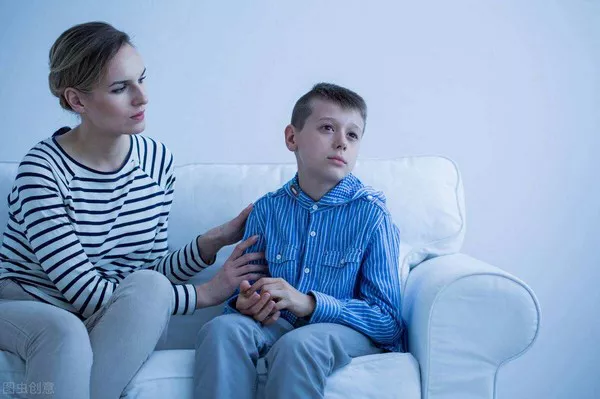Love is one of the most complex and profound emotions humans can experience. It is the foundation of many of our most cherished relationships, shaping our lives in ways both grand and subtle. Yet, despite its deep significance, love remains an enigma to many. For those who have experienced a deep connection with someone, the idea of falling in love a second time can be both intriguing and daunting.
Can we truly fall in love again after the end of a meaningful relationship? Is it possible to experience the same intensity of emotions, or perhaps even a deeper connection, with someone new? These questions bring us to a crucial aspect of human emotional resilience: the ability to love again after loss or heartbreak. In this article, we explore the psychological perspectives on whether it is possible to fall in love a second time, the factors that influence this experience, and how one can navigate the emotional journey of opening their heart once more.
Understanding Love: The Psychological Foundation
Before delving into the question of whether it is possible to fall in love a second time, it is important to understand what “falling in love” actually means from a psychological perspective.
Love encompasses a wide range of emotions, from the intense passion of romantic love to the comforting affection of long-term attachment. Psychologists often differentiate between passionate love and companionate love. Passionate love involves the intense feelings of attraction and infatuation that are commonly experienced in the early stages of a romantic relationship. Companionate love, on the other hand, is the deep, enduring connection that grows over time and is typically associated with long-term relationships, characterized by mutual respect, trust, and affection.
When someone experiences their first love, the intensity of passionate love often dominates, creating powerful, unforgettable emotions. However, when a relationship ends—especially one that involved deep emotional and romantic attachment—these feelings can leave a profound impact. The idea of falling in love again, especially after the pain of heartbreak, may seem overwhelming.
The Healing Process: Moving On from the Past
The journey to falling in love a second time begins with healing from the first. The emotional pain caused by a breakup, betrayal, or loss can leave lasting scars, making the prospect of loving again seem impossible. However, psychological research on emotional recovery suggests that people have an incredible capacity for healing. The process of recovery can take time, but with self-care, emotional work, and social support, individuals can rebuild their sense of self-worth and emotional strength.
One key factor in healing is the concept of emotional regulation. This refers to our ability to manage and process emotions in healthy ways. Those who experience deep loss often go through stages of grief, including sadness, anger, denial, and eventual acceptance. Once the emotional wounds begin to heal, and the individual is no longer defined by the past relationship, they are better able to open themselves to new experiences—romantic or otherwise.
Psychological resilience plays a significant role in this process. Resilience refers to the ability to bounce back from adversity, and it is crucial in the context of relationships. After experiencing emotional pain, resilient individuals are more likely to develop a positive outlook on future relationships, viewing them not as threats but as opportunities for growth and connection.
Can Love Be Replicated?
One common concern when contemplating the possibility of falling in love a second time is the fear that it will not be the same as the first. Indeed, the unique and intense nature of the first love experience is difficult to replicate. But does this mean that falling in love again is impossible?
Psychologists suggest that while the exact emotions or experiences of the first love may not be replicated, this does not mean that love cannot be experienced again in a meaningful way. The second love experience is often different, but it can be equally profound and fulfilling.
Research on attachment theory, developed by John Bowlby and Mary Ainsworth, suggests that our early experiences with caregivers shape the way we form emotional bonds in adulthood. As we grow and mature, our understanding of love evolves, and so too does our capacity for forming relationships. While the intensity of first love is often unmatched, individuals who have experienced love before often develop a deeper, more nuanced understanding of what love entails. This can lead to more secure and emotionally mature attachments in future relationships.
The second time someone falls in love, they are likely to bring with them a greater sense of self-awareness, emotional maturity, and an understanding of their needs and boundaries. In this sense, second loves can be even more enriching than the first, as they are often rooted in a deeper connection and more realistic expectations. Additionally, they are informed by the lessons learned from previous relationships, which can make them more balanced and fulfilling.
Factors That Influence Falling in Love Again
Several factors can influence an individual’s ability to fall in love again. These factors include emotional readiness, the timing of the new relationship, and personal growth after the previous love.
Emotional Readiness
Emotional readiness is perhaps the most important factor in falling in love a second time. If an individual is still emotionally attached to their past relationship, they may find it difficult to open themselves up to a new romantic connection. Letting go of emotional baggage from the past is a crucial step in making space for new love. It is important to recognize that emotional readiness is a process and that forcing oneself into a new relationship too soon can lead to disappointment and further emotional turmoil.
However, emotional readiness does not necessarily mean complete emotional detachment from the past. It simply means being in a place where one can recognize the potential for a new connection without using the past as a reference point for the new relationship. This emotional openness creates the conditions necessary for falling in love again.
Timing and Context
The timing of a new relationship plays a significant role in whether or not a person will fall in love again. If someone enters a new relationship immediately after the end of a previous one, they may be more likely to compare the two relationships or seek to replace the former partner rather than build a healthy connection with a new person. Time, reflection, and self-care between relationships can allow an individual to approach a new connection with an open heart and a clear mind.
Additionally, the context of the new relationship matters. A strong foundation of mutual respect, trust, and communication is essential for creating the conditions necessary for love to grow. The second time around, individuals may have a better understanding of what they need from a partner and what boundaries are important to them, allowing for healthier, more fulfilling relationships.
Personal Growth and Emotional Maturity
Personal growth and emotional maturity are often key factors in falling in love again. After the end of a relationship, many individuals experience a period of self-reflection, during which they learn more about themselves, their desires, and their values. This growth can contribute to a more fulfilling love experience when they enter a new relationship. The second time around, individuals may have greater self-awareness and a deeper understanding of their own emotional needs, making them better equipped to form a balanced and healthy relationship.
The Role of Trust and Vulnerability
Another crucial element of falling in love a second time is the ability to trust and be vulnerable with a new partner. In many cases, individuals who have experienced heartbreak or betrayal may struggle with trust in future relationships. However, trust is foundational to love, and the ability to open oneself up to vulnerability again is essential for the growth of a new relationship.
Psychological research emphasizes that trust is something that is built over time, and individuals who have been hurt before may find that they are more cautious in their approach to new love. However, with patience, communication, and understanding, it is possible to rebuild trust and form a strong emotional bond with a new partner.
Conclusion
In conclusion, the idea of falling in love a second time is not only possible, but it is also a natural part of human emotional development. While the experience of second love may be different from the first, it can be just as profound, if not more so. Emotional readiness, personal growth, timing, and trust are all essential factors in falling in love again, and each can contribute to a richer and more fulfilling relationship.
Ultimately, love is a dynamic and evolving experience, and the capacity to love again is a testament to human resilience and emotional growth. Whether it is the second, third, or fourth time, love can bring joy, connection, and growth—no matter how many times it is experienced.
Related topics:




















